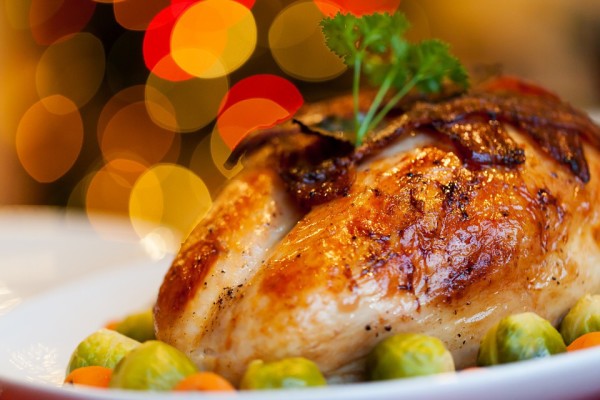When the holiday season rolls around, being conscious of food choices tends to go right out the window. Many people compromise by consuming an abundance of unhealthy foods for a limited time and then making regular exercise a part of their New Year’s resolution. If that sounds like you, and you’re happy to continue doing so, feel free. But if you’re looking for ways to adhere to a more healthy diet this year, you can start by paying careful attention to your plate during the biggest food fest of them all—Thanksgiving.
Thanksgiving, in particular, can be detrimental to healthy eating for a number of reasons, including unhealthy foods, excessive portion sizes, and leftovers for days. According to Mayo Clinic, some Thanksgiving dinners may exceed 4,000 calories—almost twice the average daily calorie intake for a healthy adult! As tasty as it may be, buttering your mashed potatoes (roughly 200+ calories per cup) and having an extra piece of pumpkin pie (upwards of 300 calories per one-eighth slice) is not exactly ideal for someone who is trying to watch what they eat.
Image Source: Tetra Images
If you happen to be doing the cooking, healthy alternatives to traditional Thanksgiving dishes are widely available. Mayo Clinic has compiled a list of fresh recipes to consider trying this year, including low-fat turkey gravy and wild rice stuffing. Live Strong also offers more options for individuals who want to enjoy a delicious meal without all of the excess calories.
Even if you are not hosting Thanksgiving dinner, or your family members prefer the standard items, there are still several ways to maintain some semblance of a healthy diet. Limit your portions of sweet items like cranberry sauce (110 calories per one-fourth cup) and candied yams (210 calories per one-half cup). Balance your carbohydrates with reasonable servings of protein and vegetables whenever possible. If all else fails, just try not to overindulge in any one dish. The same goes for packing leftovers—take minimal amounts of any tempting sweeter items, or better yet, avoid them altogether. Willpower works for some people, but the smartest route is to keep unhealthy foods out of reach completely.
One more thing—the nap that tends to be very popular after a large meal? Don’t give in to temptation. Sleeping immediately after eating prevents you from burning off extra calories, which may lead to weight gain as well as other uncomfortable side effects like indigestion and acid reflux.
When it comes to the holidays, a little of everything in moderation goes a long way. Your body will thank you later.
Feature Image Source: Public Domain Pictures










